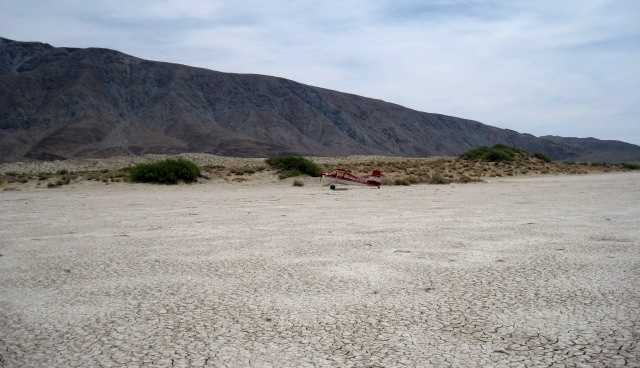For the first time ever, California’s state water board on Wednesday approved mandatory water conservation rules in the face of a historic drought, now entering its fourth year. But the regulations, which will require water usage cutbacks of up to 36 percent for some communities, are letting the worst environmental offender in the state—the agriculture industry—off the hook.
“It’s a double-standard. It’s not going to be adequate to fix our water management problems,” Adam Scow, California director of Food & Water Watch, told Common Dreams. “Overall, our state has failed to properly manage our water rights.”
Agriculture accounts for roughly 80 percent of human-related water consumption in the state. Much of that comes from large-scale farms in California pumping billions of gallons a year of fresh groundwater to keep producing thirsty crops and animal products for supermarkets across the country—a “case study in the unwise use of natural resources,” the New York Times wrote last month.
Meanwhile, cities and water agencies will be required to implement 4 to 36 percent cutbacks, depending on the area. San Francisco must reduce its usage by 8 percent, Los Angeles by 16 percent, San Jose by 20 percent, and Sacramento by 28 percent. Failure to meet those targets could result in fines against water agencies of up to $10,000 a day. State legal advisers will review the rules before they are implemented.
While some cutbacks from cities and consumers are welcome, the government and the water board must “come to grips with the fact that in the bigger picture…. 80 percent of water goes to subsidized agriculture and irrigation, and there are a lot of things being grown in places where they shouldn’t be grown when you’re in a water-restricted state,” Trent Orr, an attorney with environmental legal nonprofit Earthjustice, told Common Dreams. “This is the time that we hope the state government steps up and realizes it has to do something other than fiddling around the edges.”
The California Water Resources Control Board adopted the emergency regulations in response to Governor Jerry Brown’s mandate, issued in late April, calling for statewide rationing amid the drought he described as “unprecedented in recorded history.”
However, as Scow explained, California’s powerful agriculture industry seems to have gotten a free pass shortly after key lobbyists met with state government staff members last month.
As Orr states, “while agriculture makes up about 2 percent of the state’s economy, it has tremendous political clout. It’s time to take them on.”

